


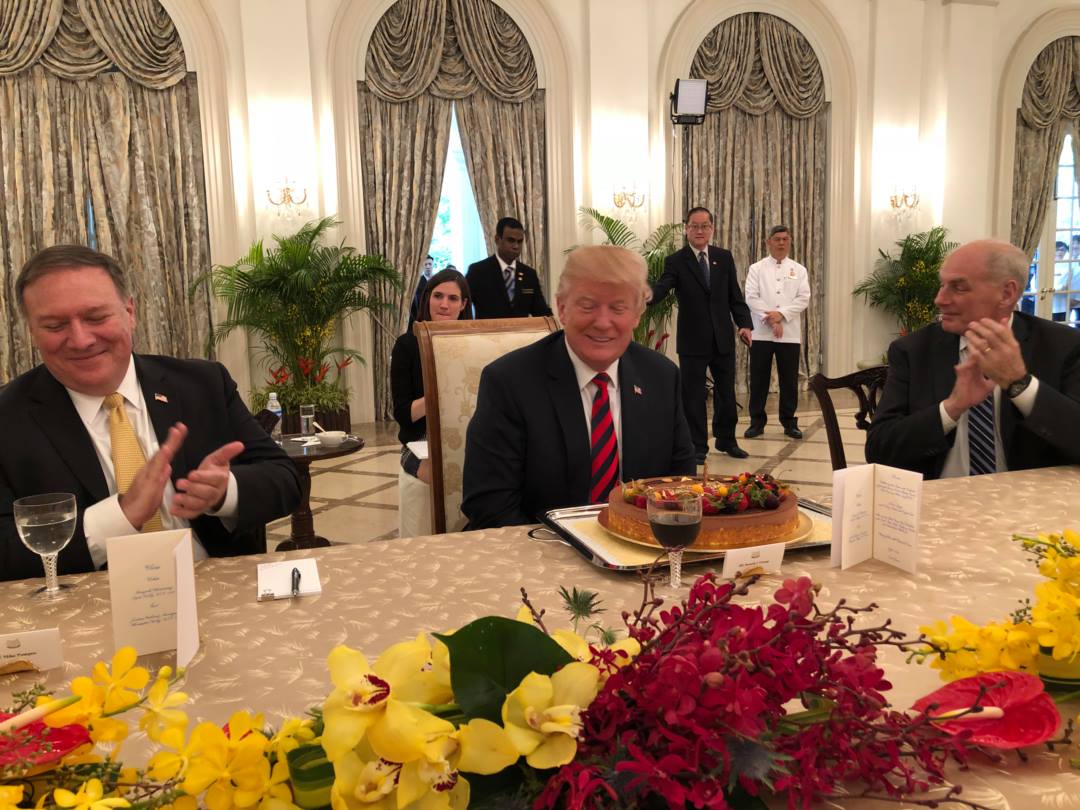
The historic summit between US President Donald Trump and Democratic People's Republic of Korea leader Kim Jong-un will start with a one-on-one meeting, with translators only, followed by an expanded bilateral meeting and a working lunch, the White House said in a statement on Monday evening local time in Singapore.
It said Trump will participate in a media availability at the conclusion of the summit before departing at about 8pm for the US. The departure will thus be earlier than the original plan of Wednesday morning.
Diplomats from both the Democratic People's Republic of Korea and the United States continued their last-minute talks for an entire day on Monday in a bid to narrow their differences and the pave way for the historic summit between the US President Donald Trump and DPRK leader Kim Jong-un.
Trump appeared to be in a good mood for the upcoming talks. "Great to be in Singapore, excitement in the air!" he tweeted on Monday.
"We have a very interesting meeting in particular tomorrow, and I think things can work out very nicely," he told Singaporean Prime Minister Lee Hsien Loong after they sat down for a working lunch.
The DPRK's Korean Central News Agency reported Monday morning that the two leaders will discuss peace and denuclearization at their Tuesday meeting.
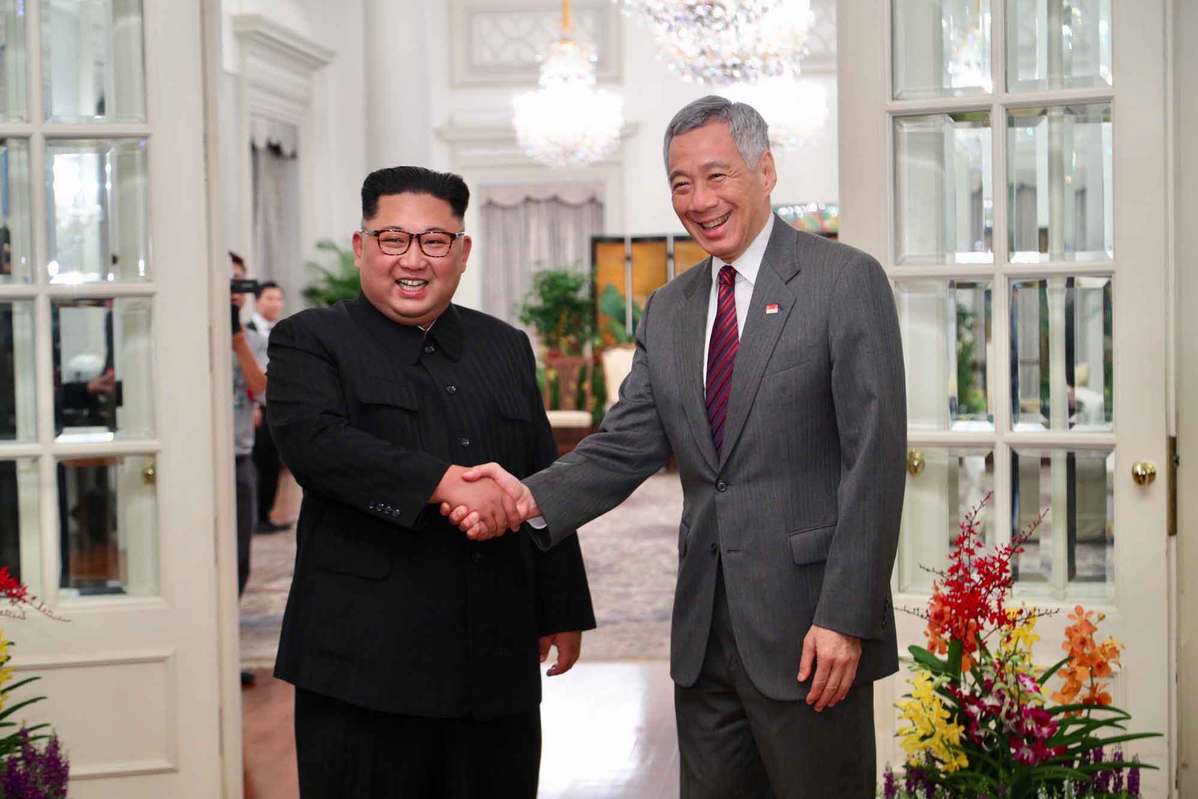
US Secretary of State Mike Pompeo said at a late afternoon news conference that the ultimate objective the US seeks from diplomacy with the DPRK has not changed. "The complete, verifiable and irreversible denuclearization of the Korean Peninsula is the only outcome that the United States will accept," he said.
Chinese Foreign Ministry spokesman Geng Shuang said that China sincerely hopes the summit will be successful and positive results will be achieved.
China, an important neighbor of the Korean Peninsula, is willing to help promote its long-term stability and denuclearization, and hopes the two sides can work together for a political solution on issues of mutual concern, Geng said at a regular briefing.
Leading the Monday preparation talks at the Ritz Carlton hotel in Singapore were Sung Kim, the US ambassador to the Philippines and former US envoy to the Six-Party Talks, and DPRK Vice-Foreign Minister Choe Son-hui.
Pompeo said sanctions will remain until the DPRK completely and verifiably eliminates its weapons of mass destruction programs, adding that those sanctions will increase if diplomacy does not move in the right direction.
Pompeo, who has had two earlier meetings with Kim, said Trump recognizes the DPRK's desire for security and is prepared to ensure that, but he refused to give any details, such as a US troop reduction in the Republic of Korea or withdrawal of the US nuclear umbrella for the ROK and Japan.
"We are hopeful this summit will set the conditions for future productive talks," he said.
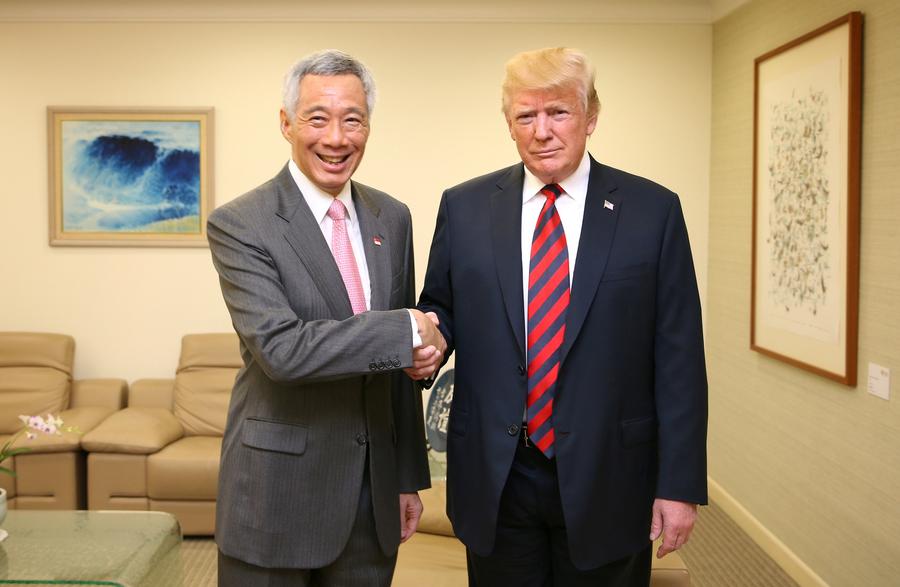
Analysts believe that differences over the definition of denuclearization - and necessary compromises to be made on both sides - will be critical for ultimate success.
Trump earlier had demanded swift denuclearization of the DPRK, but he has recently kept saying it is going to be a process that will take time.
The DPRK has long argued that its nuclear weapons program is for self-defense.
The ROK President Moon Jae-in expressed hope on Monday for the success of the summit, but said it will only mark the start of a "long process" of denuclearizing the DPRK, which he said could take years, the ROK's Yonhap News Agency reported.
Trump called both Moon and Japanese Prime Minister Shinzo Abe on Monday.
"Trump has adopted a more restrained and cooperative attitude, but it remains highly uncertain what substantive concessions he will be willing to make," said Ted Carpenter, a senior fellow for defense and foreign policy studies at the Cato Institute, a Washington-based think tank.
People surrounding Trump, such as Pompeo, national security adviser John Bolton and Vice-President Mike Pence, have opposed concessions on the US side.
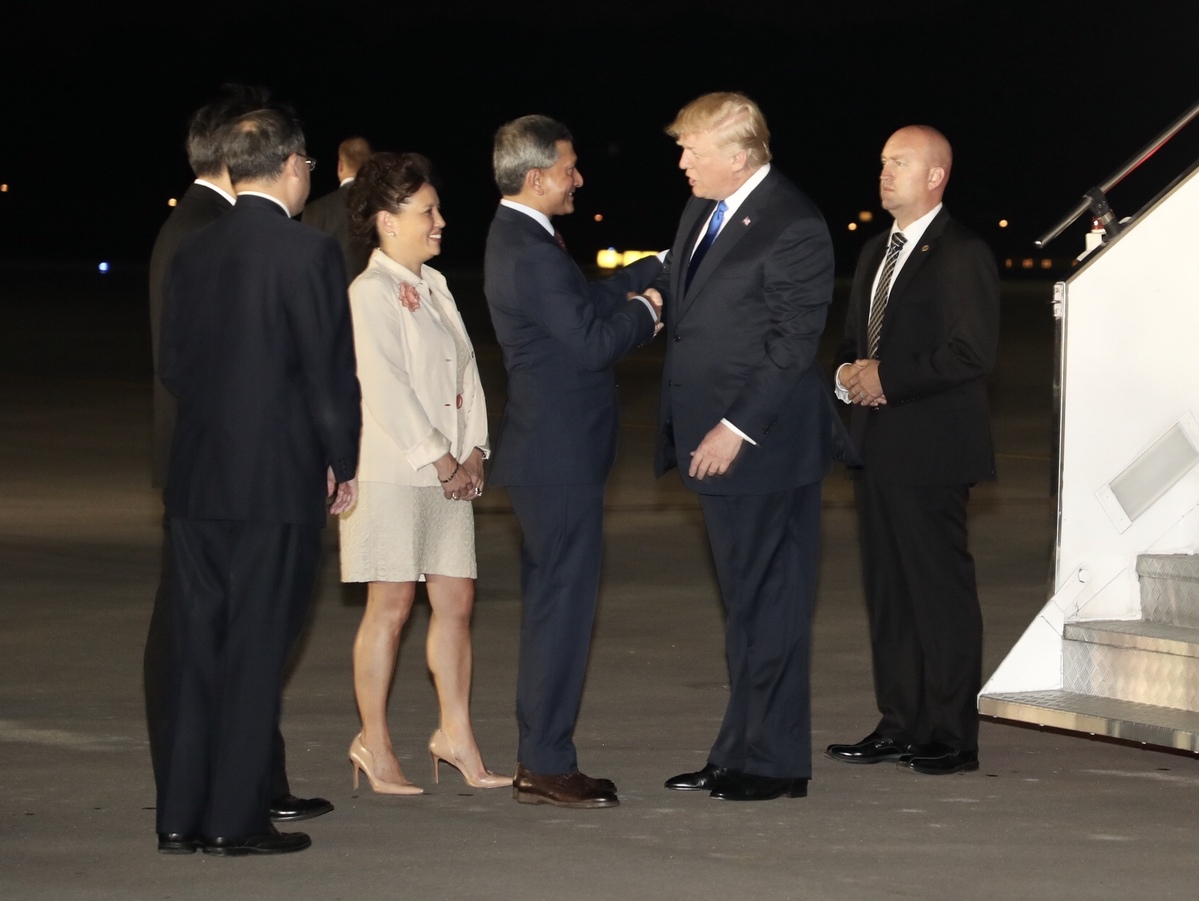
Ruan Zongze, vice president of the China Institute of International Studies, said both Pyongyang and Washington need this meeting. Trump needs a miracle to break the quandary he faces at home, and breaking the ice with Pyongyang is worth trying, Ruan said. Kim needs to cement his leadership and foster a favorable external environment by improving relations with the US.
Chen Gang, a senior research fellow with the East Asian Institute at the National University of Singapore, said the fact that the summit is being held demonstrates that both the DPRK and the US agree to resolve the issues by dialogue. However, Chen added, due to the long-standing confrontation, the two sides still have differences in many aspects. So it is still important that they keep the peaceful momentum of recent progress and strive for the political settlement of the peninsula issues.
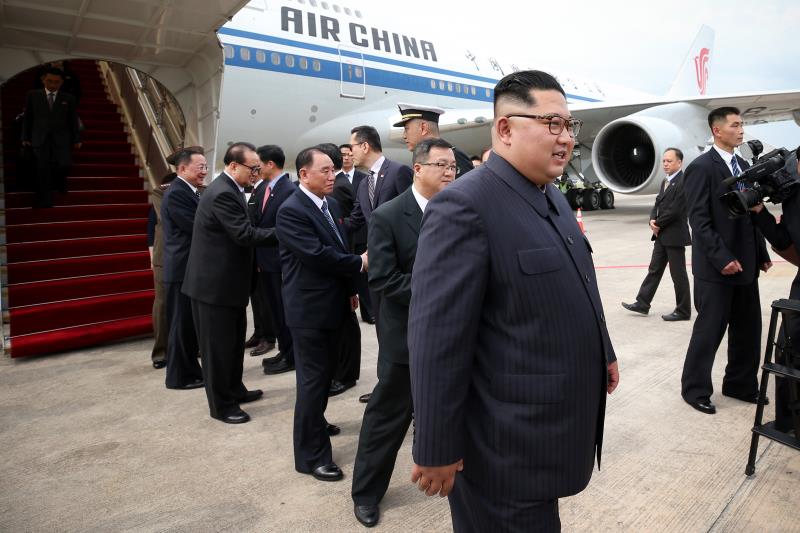
Carpenter expressed that there is still a decent chance that Washington would agree to a peace treaty formally ending the Korean War (1950-1953) and a reduction in the number of military exercises with the ROK.
But he said there is very little chance of a troop withdrawal or a rapid lifting of sanctions.
Carpenter said he thinks the key issues are whether Trump will consider diplomatic recognition of the DPRK and at least a phased lifting of sanctions. "Without those concessions, an agreement is unlikely," he said.
"The entire East Asian region has reasons to breathe with a sense of relief over the Kim-Trump meetup in Singapore," said Zha Daojiong, a professor at the School of International Studies of Peking University.
But he said it is hard to predict what may come out of the meeting, as the change in tone between the two leaders was very abrupt.
"So long as the two sides keep talking, even at lower levels, there is a chance for peace, or peace of mind," Zha said.
If you have any problems with this article, please contact us at app@chinadaily.com.cn and we'll immediately get back to you.